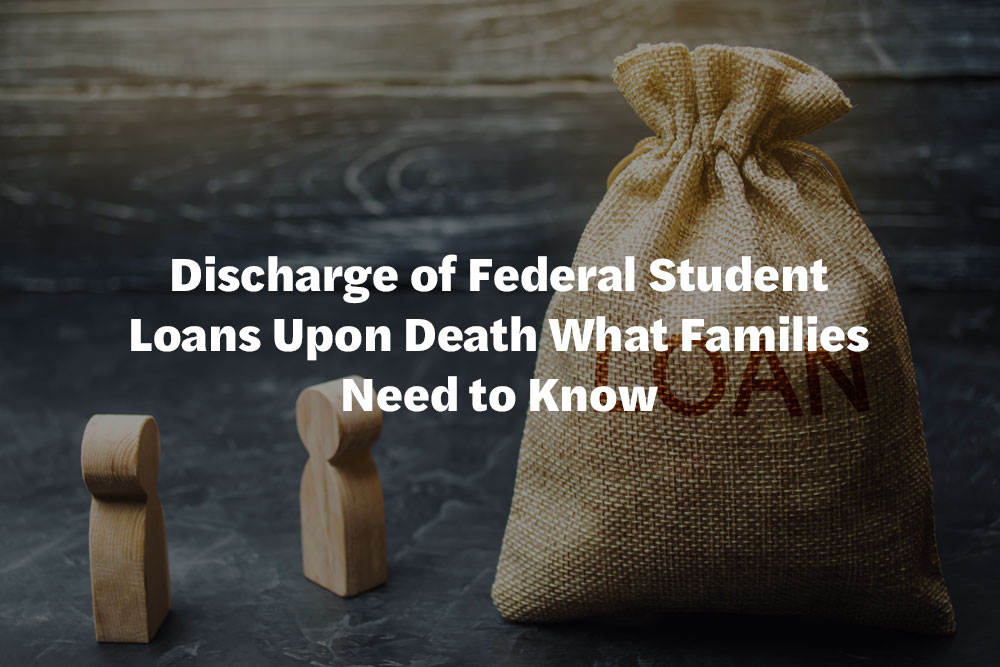Dealing with the death of a loved one is challenging, and understanding the financial implications, including the fate of federal student loans, is essential for families during such difficult times. At Allenby Law, we help families understand and navigate the complexities of federal student loans in estate planning. This blog outlines what happens to these loans upon the borrower’s death and what steps families need to take.
Understanding Federal Student Loan Discharge Upon Death
Federal student loans are typically discharged if the borrower dies. This policy applies to Direct Loans, including Stafford and PLUS loans. The process removes the debt burden from the family, preventing it from consuming estate assets or creating financial strain.
Steps to Discharge Federal Student Loans
- Notification: The family or representatives must notify the loan servicer of the borrower’s death as soon as possible to initiate the discharge process.
- Documentation: Provide a certified copy of the death certificate to the loan servicer. This is the only documentation required to prove the borrower’s death and to complete the discharge process.
- Review Process: Once the loan servicer receives the death certificate, they will review the case and process the discharge. This process should relieve the family or any cosigners from further payment obligations.
Special Considerations for Different Types of Loans
- Parent PLUS Loans: If a parent who took out a PLUS loan for their child dies, the debt can be discharged. Similarly, if the student for whom the loan was obtained dies, the parent can also have the loan discharged.
- Private Student Loans: The treatment of private student loans upon the borrower’s death can vary by lender. Some private loans are not discharged upon death, which could potentially burden the estate or the cosigners. It’s crucial to check the specific terms and conditions of the private loan agreement.
- Spousal Responsibility: In community property states, the spouse may be responsible for the debt if the loan was taken out during the marriage, even if it’s a federal student loan. Consult with an estate planning attorney to understand specific state laws that might affect the responsibility for these debts.
Impact on Estate Planning
- No Estate Burden: Since federal student loans are discharged upon the borrower’s death, they generally do not become liabilities against the estate. This means other assets in the estate can be distributed according to the deceased’s wishes without being diminished by unpaid student debts.
- Inform Executors and Beneficiaries: Make sure that executors and beneficiaries are aware of the potential discharge of student loans and understand the necessary steps to take with loan servicers.
The discharge of federal student loans upon the death of the borrower provides significant financial relief to families during a difficult time. Understanding how to handle this process is a crucial aspect of managing a deceased loved one’s affairs. At Allenby Law, we specialize in providing clear, compassionate guidance on managing educational debts in estate planning. Contact us for expert advice on how to include these considerations in your estate plan, ensuring that your family is well-prepared and informed.



